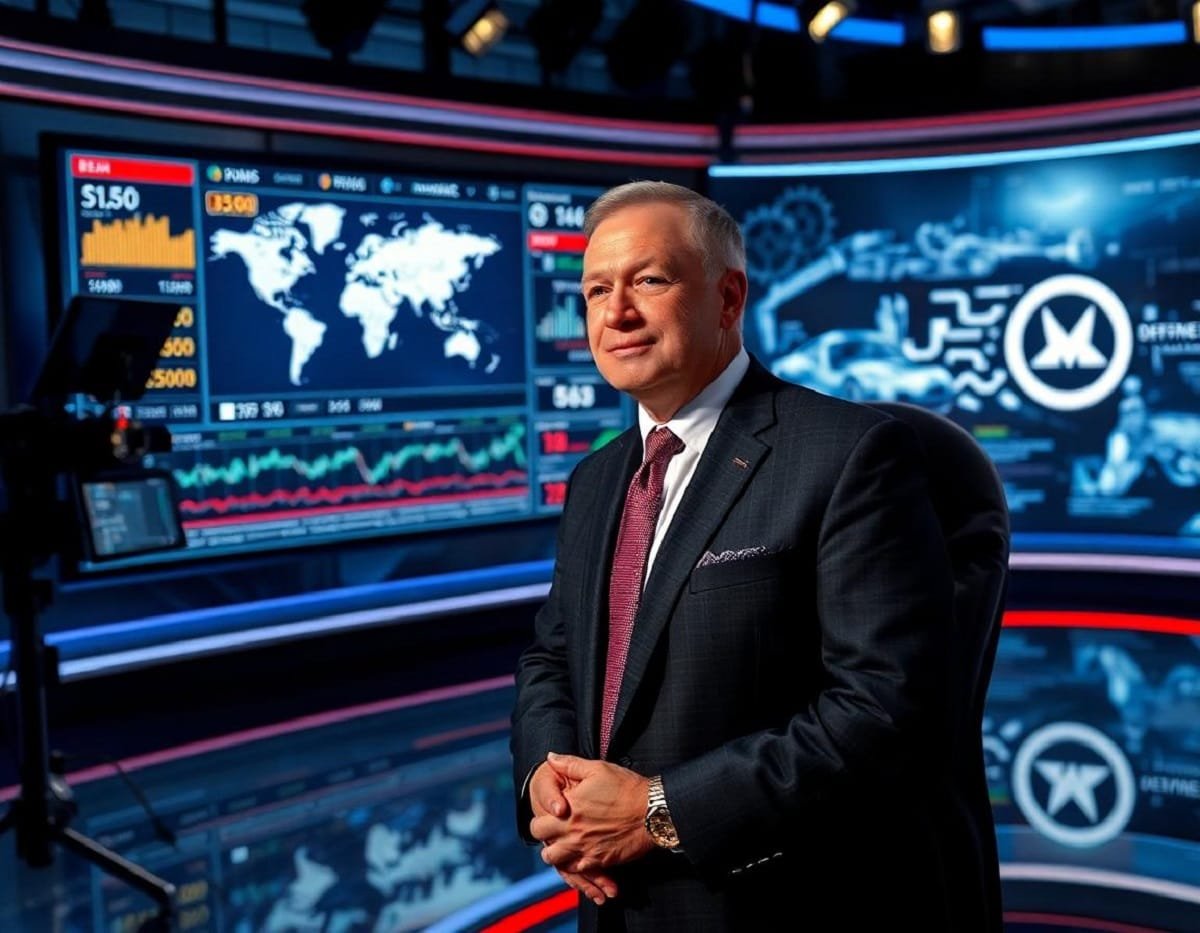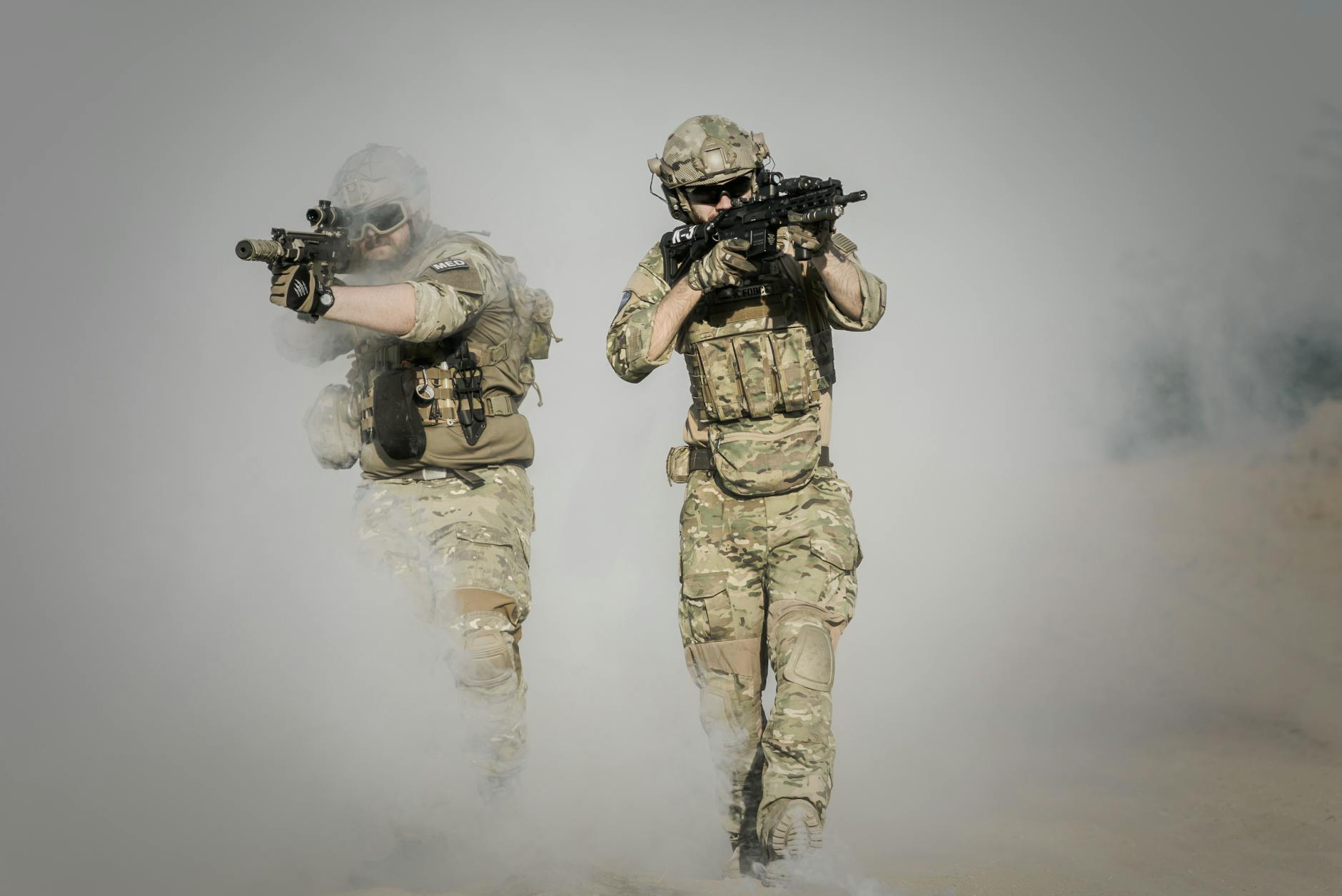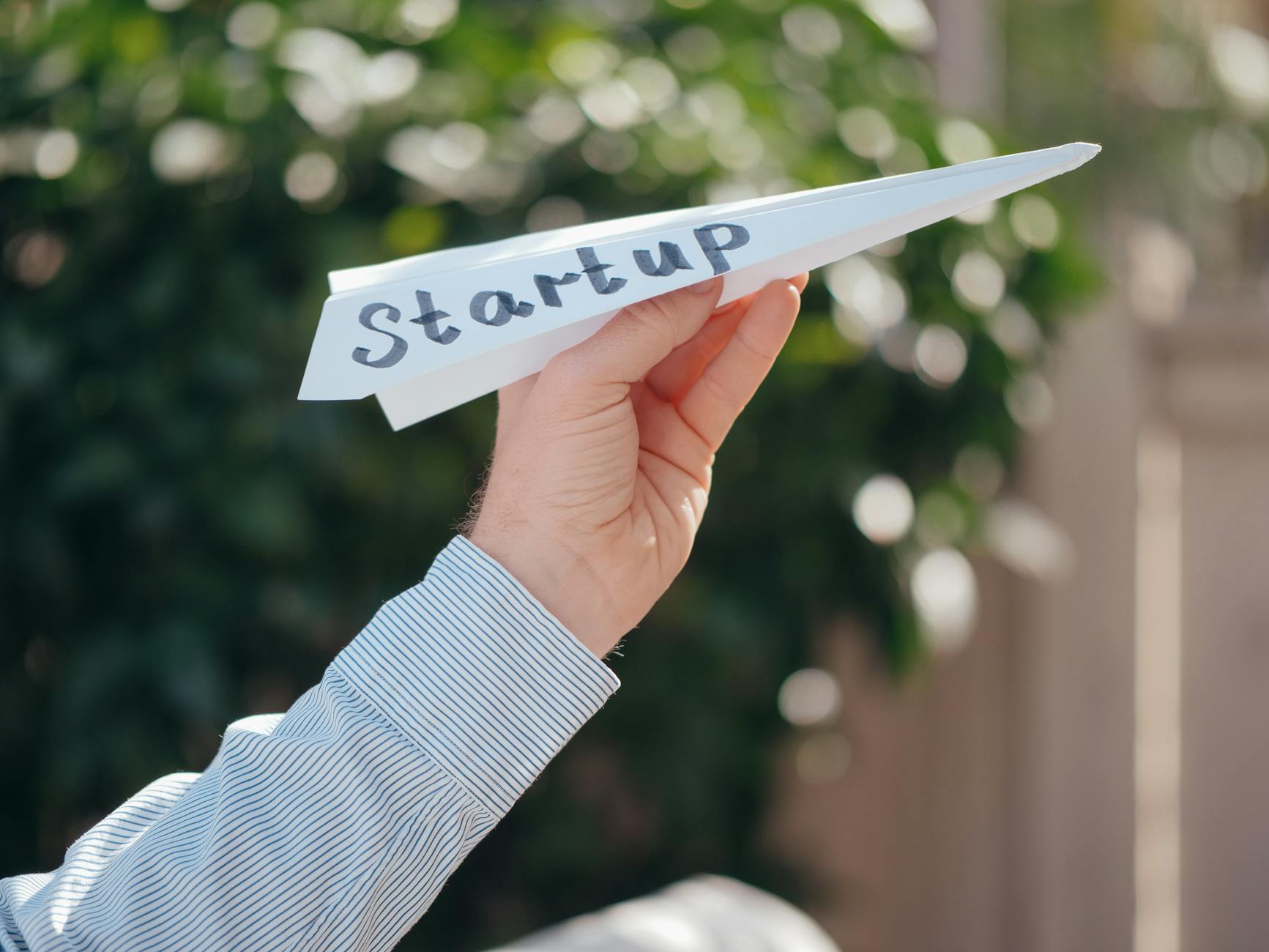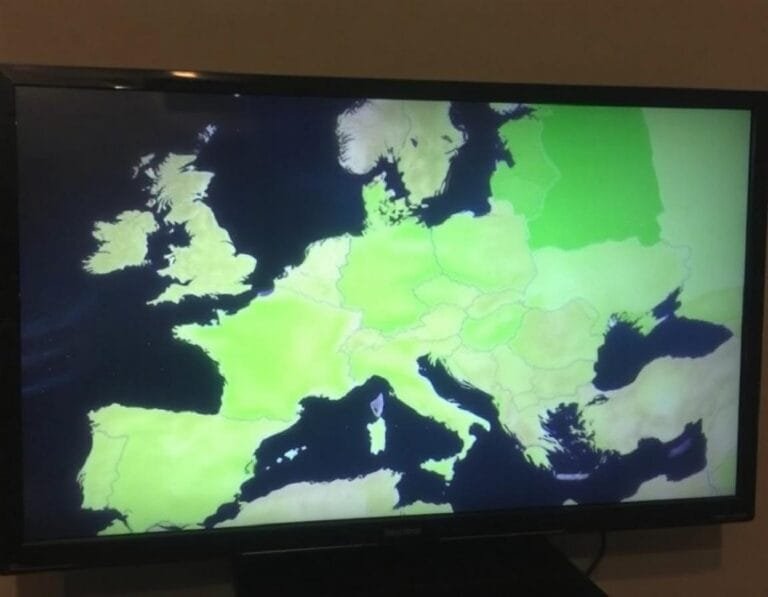
Rheinmetall Sets Bold 50 Billion EUR Sales Goal by 2030 [CEO Interview Highlights] Rheinmetall just set an ambitious goal to hit 50 billion euros in sales by 2030. CEO Armin Papperger made this big reveal in a recent German TV interview, bringing fresh attention to the company’s growth strategy.
This target isn’t just a bold move for Rheinmetall, it also sends a message across the whole defense sector and the European market. With rising global demand for defense technology, this vision could shift how Europe plans for security and industry growth in the years ahead. Readers following defense, business, or European news will want to keep a close eye on what comes next.
Background on Rheinmetall and Its Core Business
Rheinmetall stands out as a powerhouse in both the defense and automotive industries. With more than a century of history, the company has become one of the most recognized names in global security, military technology, and high-performance vehicle components. As demand for defense and mobility solutions surges, Rheinmetall’s focus and expertise put it at the center of industry shifts.
 Photo by Megapixelstock
Photo by Megapixelstock
Rheinmetall’s Global Defense Leadership
Rheinmetall has steadily claimed its spot among top global defense firms. The company is known for delivering advanced solutions that support army, air force, and naval forces around the world. These offerings include:
- Armored vehicles like the famed Leopard tank
- Modern munitions and artillery systems
- Air defense and electronic warfare technology
- Simulation, training, and digital battlefield systems
The group’s ability to innovate quickly makes it a trusted partner for many NATO and European allies. Recent moves to expand production capacity, especially in response to increased European defense budgets and shifting geopolitical needs, have driven impressive growth. Insights from Rheinmetall’s strategic moves can be read in this analysis about their global defense position.
Automotive Technology and Mobility Solutions
Rheinmetall’s influence isn’t limited to defense. The group’s automotive division, operating under the brand name Rheinmetall Automotive (previously Kolbenschmidt Pierburg), supplies critical parts and systems to the world’s biggest vehicle manufacturers. Its automotive segments focus on:
- Engine components and emissions systems
- Lightweight materials and e-mobility solutions
- Advanced sensors, control units, and valves
Even as the auto industry faces big shifts toward electrification and sustainability, Rheinmetall’s commitment to innovation fuels steady growth. The company’s latest financial figures show record sales, thanks mainly to surging demand for defense systems but with steady contributions from its automotive arm.
Business Segments and Recent Growth Trends
Rheinmetall operates through two main segments:
- Defence: The group’s largest segment, covering land systems, weapon and ammunition, electronic solutions, and vehicle systems.
- Automotive (Powertrain Solutions): Focused on innovative solutions for internal combustion engines, hybrids, and electric vehicles.
Both segments are bolstered by global partnerships and a push for technological leadership. The quarterly financial reports reveal that defense business growth is outpacing automotive, yet both divisions remain crucial pillars in Rheinmetall’s climb to its 2030 targets. New orders, expanded production, and the need for modern defense capabilities keep the company moving steadily upward.
For readers tracking major players in security and mobility, Rheinmetall stands as a strong example of how a company adapts, grows, and leads in two tough industries at once.
CEO’s Vision and Announcement on German Television
Armin Papperger, Rheinmetall’s CEO, made headlines with his ambitious announcement during a German TV interview. Speaking with broadcasters RTL and NTV, Papperger laid out a clear vision for the company: achieve annual sales of 50 billion euros by 2030. His remarks highlighted not only the company’s sales target, but also Rheinmetall’s plans to expand in new markets, meet rising global demand, and build innovation into every segment. The broadcast put Rheinmetall at the forefront of public discussion, turning a financial target into a focal point for discussions about European security, industry shifts, and long-term growth.
 Photo by Mikhail Nilov
Photo by Mikhail Nilov
Reasons Behind the Ambitious 2030 Target
Papperger didn’t just throw out a big number. He explained the drivers that make this 50 billion euro goal realistic:
- Geopolitical tensions: Papperger spoke directly about the ongoing war in Ukraine and wider instability near Europe’s borders. He said these global events are driving demand for modern defense technology and pushing countries to beef up security.
- Rising defense spending: As Papperger pointed out, nearly every NATO ally and leading European nation has raised defense budgets in recent years. Governments are placing large, long-term orders for armored vehicles, ammunition, and air defense systems.
- Rheinmetall’s position: The CEO outlined how Rheinmetall has used investments in modern production lines, digital tools, and supply chain resilience to win new business. The company isn’t only riding the wave, it’s helping steer the industry by partnering with key allies, investing in local manufacturing, and expanding into new regions.
In his words, the sales goal flows from “secure, long-term contracts” and the need for “reliable partners” in defense manufacturing. The 2030 vision balances Rheinmetall’s strengths in advanced systems with a focus on agility and customer needs. For more on Papperger’s televised statements and the context behind the targets, see the KFGO coverage of Rheinmetall’s 2030 ambitions.
Reactions from Investors, Industry, and Media
The CEO’s bold target grabbed attention across Germany and Europe. In the hours after the TV broadcast, here’s how the public and industry responded:
- Investors: Many viewed the goal as proof of Rheinmetall’s confidence and a sign of strong future order books. Shares saw quick interest, and some analysts even raised their outlook on the company, citing the “clear guidance” set by Papperger.
- Industry leaders: Other defense manufacturers and suppliers responded with cautious optimism. Some see Rheinmetall’s target as proof of a new era in European defense production, while others worry about competition for skilled labor and supply chains.
- Business media: Coverage in German business outlets was immediate and in-depth. Reports focused on the link between Rheinmetall’s order pipeline and ongoing global risks. Well-known reporters highlighted the company’s brisk growth and Papperger’s message of reliability as a government supplier.
- Public opinion: On social media and forums, reactions ranged from pride in a German company’s success to debate about the ethics and risks of expanding arms production. For many, though, Rheinmetall’s vision stood out as a symbol of economic confidence in tough times.
A helpful round-up of reactions and next steps can be found in The Star’s report on the CEO’s announcement.
Through clear communication and a results-focused plan, Armin Papperger has moved Rheinmetall’s growth target from internal ambition to a headline story in business and political circles. The response shows just how closely the company’s next steps will be watched all the way to 2030.
Strategic Growth Drivers for Rheinmetall to Reach 50 Billion EUR Sales
Rheinmetall’s sales target isn’t built on hope—it’s anchored in clear, bold actions. The plan to hit 50 billion euros by 2030 calls for growth in every direction: expanding to new regions, doubling down on advanced tech, and locking in critical partnerships. Here’s how each driver fits into Rheinmetall’s roadmap.
Geographical Expansion and New Markets
Rheinmetall isn’t waiting for opportunity to knock—it’s opening new doors in global markets, especially outside its European stronghold.
 Photo by Pixabay
Photo by Pixabay
The company’s recent moves show a real push into Asia and North America. A key step is the acquisition of Michigan-based Loc Performance, which plants Rheinmetall squarely in the US defense supply chain. This isn’t just a flag on a map—it means more local contracts and access to crucial American programs, giving Rheinmetall a home-team advantage in a major market. More on this milestone is covered in the report about Rheinmetall closing the Loc Performance acquisition.
In Asia, the company is forging ties in countries like Qatar, Saudi Arabia, and Australia. According to recent findings, a quarter of Rheinmetall’s business now comes from outside Europe, an impressive shift that’s paying off with new buyers and fresh demand. Details on the company’s global footprint can be found in its overview of Vehicle Systems International.
Here’s what makes expansion into these markets a smart play:
- Local partnerships increase trust and speed up contracts.
- Diverse customer base lowers risks tied to any single region.
- Proximity to clients helps Rheinmetall serve quickly and adapt to local needs.
This worldwide push widens Rheinmetall’s client roster, bringing its advanced systems to new armies and industries.
Innovation and Technology Investments
Rheinmetall treats innovation as fuel for its growth engine. The company is investing in advanced military technology, cybersecurity, and sustainability efforts that make its portfolio both attractive and future-ready.
Recent launches in armored vehicles, digital battlefield systems, and military drone tech have earned Rheinmetall a position among leaders building the future of defense. For example, the joint venture with Anduril for next-generation military drones adds flexibility and sophistication to European armed forces. Catch the full story about this partnership in the piece on military drone development in Europe.
Cyber defense is another top priority. The company recently achieved a 35% cost savings in its cybersecurity operations by automating compliance and building a stronger security posture with advanced SIEM solutions. Read more in the detailed Rheinmetall cybersecurity success story.
Rheinmetall’s innovation isn’t just reactive. It’s focused on making products that are:
- More secure: Layered cyber defenses and resilient digital systems.
- Efficient and sustainable: Measures to cut emissions in both defense and automotive divisions.
- Adaptable: Digital tools that respond to shifting battlefields and regulatory needs.
This investment in tech keeps Rheinmetall one step ahead—and that means more contracts, stronger partnerships, and reliable returns.
Major Defense Partnerships and Contracts
Big growth goals need big contracts—and Rheinmetall delivers. The company’s ability to secure long-lasting defense deals is a core part of its 2030 vision.
Recent agreements with Germany’s Bundeswehr are a strong example, worth up to 260 million euros for logistics support and supply chain management. Check out Rheinmetall’s major order for logistical support of the armed forces for more detail.
Rheinmetall stands as a trusted partner to NATO, often supplying next-generation solutions to alliance members. The company’s American Rheinmetall Defense division ensures a steady stream of partnerships with the US military, reinforcing its standing as a top supplier on both sides of the Atlantic. More info on this North American expansion is here: American Rheinmetall Defense profile.
What gives these partnerships their staying power?
- Multi-year deals provide steady revenue projections.
- Alliance with NATO brings both prestige and stability.
- Collaboration with governments secures Rheinmetall a seat at the table for new programs and emerging needs.
The depth and length of these partnerships set the stage for Rheinmetall’s growth—and help push the company toward its 50 billion euro target.
Challenges and Risks on the Road to 2030
Rheinmetall’s road to a 50 billion euro sales target isn’t a straight line. Even with momentum, the company faces real obstacles—some expected, others less predictable. Growth in the defense and automotive sectors often comes with roadblocks like strict regulations, political twists, supply chain headaches, and the ups and downs of global economies. Understanding these issues is key to seeing what could shape Rheinmetall’s future.
Regulatory Hurdles and Compliance Pressures
Rules and regulations in the defense industry move slow, but the costs and complexity add up fast. Each new contract or export must meet requirements in areas like arms control, anti-corruption, and cybersecurity.
- Tight export controls can slow sales, especially outside Europe.
- Changes in environmental standards push the automotive side to invest more in sustainable tech.
- Complex supplier rules make onboarding new partners slow and expensive.
For more on how strict requirements shape supplier strategies, this guide to regulatory compliance in the defense sector breaks down the risks and how companies try to manage them. Excessive regulations can even slow down innovation and delay product launches in a fast-changing world. U.S. policymakers regularly debate relaxing these standards, as seen in arguments to streamline defense procurement regulations.
Political Risks and Shifting Sentiment
Defense firms don’t operate in a vacuum. Policies and political attitudes can shift overnight, especially after elections, scandals, or changes in public opinion.
- Governments can cut budgets quickly or pause deals, spooking investors.
- Public debates over arms exports may trigger new restrictions.
- Nationalism can lead to “buy local” rules that keep foreign competitors out—or force global companies like Rheinmetall to set up local plants.
Political mood swings are especially big for global players. According to recent analysis of risks facing defense contractors, even strong industry growth doesn’t remove the threat of sudden legislation or negative headlines. Long-term plans have to stay flexible to survive new threats from shifting leadership or global alliances.
Supply Chain Disruptions
Even the best contracts are only as strong as the supply line behind them. Today’s defense supply chains are global and fragile. They can break due to cyberattacks, trade fights, or natural disasters.
 Photo by Kindel Media
Photo by Kindel Media
Disruptions make it harder to get microchips, specialty metals, or even simple components. Basic supplies can become scarce overnight due to war or pandemic fallout. Defense leaders highlight the need to strengthen critical supply chains, showing that network strength is as important as new contracts.
When suppliers struggle, costs spike. The Pentagon itself admits regular delays linked to labor shortages, bottlenecks, and slow delivery of key military tech. Check out this inside look at ongoing Pentagon supply chain challenges.
Economic Uncertainties
Economic forces play a huge role in Rheinmetall’s future plans. Growth could slow if markets wobble or if governments run out of money for new projects.
- High inflation pushes up prices for materials and labor.
- Slow growth means tighter defense and infrastructure spending.
- Tariffs, trade wars, and sanctions can hike costs and kill off new deals.
Europe and allied nations have kept defense budgets high in recent years, but future economic shocks could force their hand. The European Commission warns that high defense spending can crowd out private investment and raise public debt, leading to tough choices down the road. The industry continues to keep an eye on how global trade disputes and rising protectionism affect defense programs worldwide.
These challenges push Rheinmetall to stay adaptable, flexible, and ready to rethink strategies as new hurdles appear. Knowing the risks is a big part of setting—and reaching—bold targets.
Implications for the European Defense Sector and Broader Economy
Rheinmetall’s drive to reach 50 billion euros in sales by 2030 is bigger than a single company’s ambition. This goal acts like a beacon for the wider European defense sector and carries ripple effects for the entire region’s economy. As Rheinmetall pushes forward, European industry gears up for a new growth chapter, and Germany may boost its role as a security and economic powerhouse.
Impact on the European Defense Sector
Rheinmetall’s aggressive target is already causing waves across Europe’s defense market. When a company of this size signals long-term confidence, others pay close attention. Here’s how this shapes the sector:
- Raising the bar for competitors: Other defense firms now face pressure to invest, innovate, and expand their own offerings to keep up. This helps fuel faster adoption of next-gen tech and raises standards across the board.
- Job growth across supply chains: As Rheinmetall and its partners ramp up activity, new jobs open up all along the supply chain, from component makers to engineering and logistics. In fact, the European defense sector has been outpacing the general job market, showing clear gains as security priorities grow. See the recent Euronews report on defense job growth in Europe.
- Spurring more regional investment: Rheinmetall’s public targets make it easier for governments and private firms to justify new facility investments, knowing there’s rising long-term demand.
- Boosting innovation: More contracts and money flowing to defense players often means new tech, better training, and more advanced products that eventually benefit allied countries.
Together, these trends could shape a European defense industry that is more competitive, tech-focused, and resilient.
Shifting Regional Industry Dynamics
The drive for higher sales is shifting how countries across Europe think about security and manufacturing. Germany’s lead in defense production now feeds into broader industrial change, often compared to the country’s traditional car sector. Consider these points:
- Germany doubles down: Rheinmetall’s growth signals a shift in the German economy, where defense is not just catching up but actively claiming center stage. Some analysts even argue “tanks, not just cars,” will be part of Germany’s future economic story. Check out this Reuters analysis on Germany’s pivot toward defense.
- Wider supply chain benefits: As big defense projects expand, sectors from electronics to metals and skilled trades see new growth opportunities.
- New industry players entering the scene: Smaller firms and investors are watching closely, stepping in to partner or supply parts. The current “Zeitenwende” or turning point in German policy is drawing newcomers eager to ride the wave, even if entry comes with careful legal steps. For perspective, see insights on new opportunities and legal shifts in Germany’s defense sector.
This creates a climate where big ambitions like Rheinmetall’s help foster a “rising tide lifts all boats” effect for supporting industries.
Broader Economic Effects for Germany and Europe
Defense growth sends benefits through the broader economy, affecting both GDP and everyday workers. There are several short- and long-term effects worth highlighting:
- Wider economic boost: As defense manufacturing grows, workers’ wages and company profits funnel back into local economies through spending, housing, and services. Some experts see the rise of defense as a possible “growth machine” for Europe, especially during times of uncertainty. For a clear look at this argument, see the POLITICO piece on defense as a driver of European growth.
- Increased investment and stability: Long-term defense contracts can shield economies from sudden downturns, creating stable jobs that last through economic ups and downs. This stability is particularly valuable for regions still recovering from recent shocks.
- Higher fiscal demands: While growth is good news, defense spending must be balanced against public budgets. The European Commission warns that high spending can crowd out investments in other sectors, potentially raising public debt or affecting private growth. For deeper analysis, see the breakdown of the economic impact of higher defense spending.
- Closer global ties: As German and European defense firms expand abroad, they forge new international partnerships and promote exports, boosting both trade and diplomatic standing.
 Photo by Karina Badura
Photo by Karina Badura
Germany’s robust move into defense brings higher exports, long-term contracts, and growing jobs, all while helping secure Europe’s future. But keeping growth sustainable will require smart balance. Leaders must weigh military demand against other needs, watching for both the upsides and potential costs to the larger economy.
Conclusion
Rheinmetall’s 50 billion euro sales goal by 2030 shows just how confident the company is about its future. The plan stands on solid ground, with a focus on new markets, smarter tech, and tight partnerships. Each step lines up to meet not just company needs but also changing demands across Europe and beyond.
This move signals big shifts for the defense sector and the wider economy. As Rheinmetall grows, so do its partners, suppliers, and even the communities around its operations. The next few years will reveal how this vision shapes jobs, technology, and security policy in Europe and on the world stage.
Thanks for reading. If you have thoughts on Rheinmetall’s growth or the defense industry’s direction, share them below or with your network. Stay tuned for more insights on the future of European industry and security.

